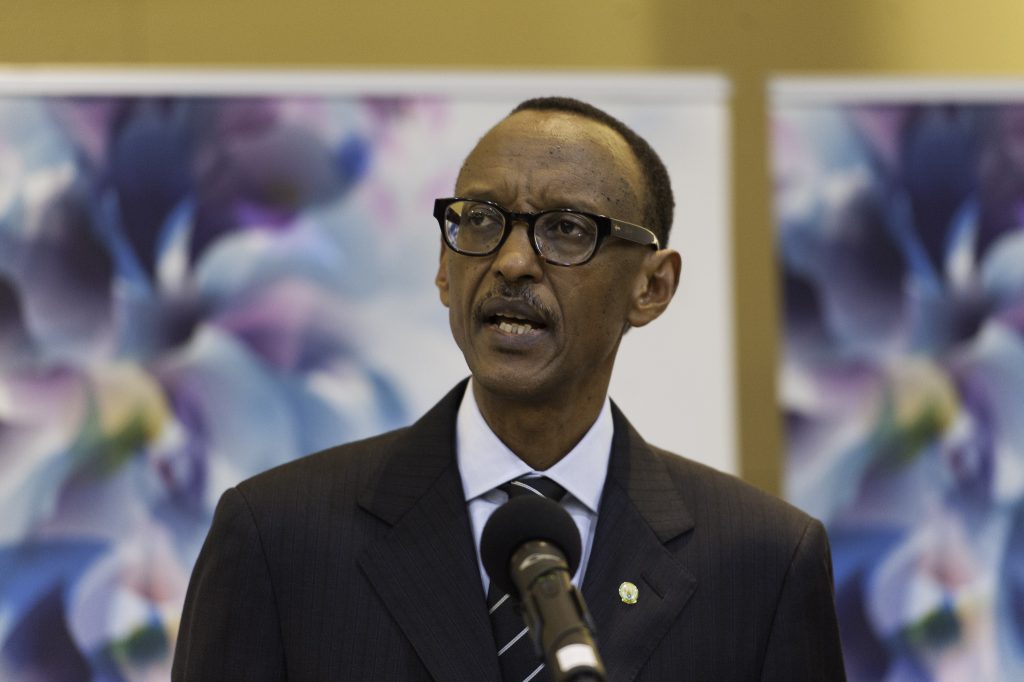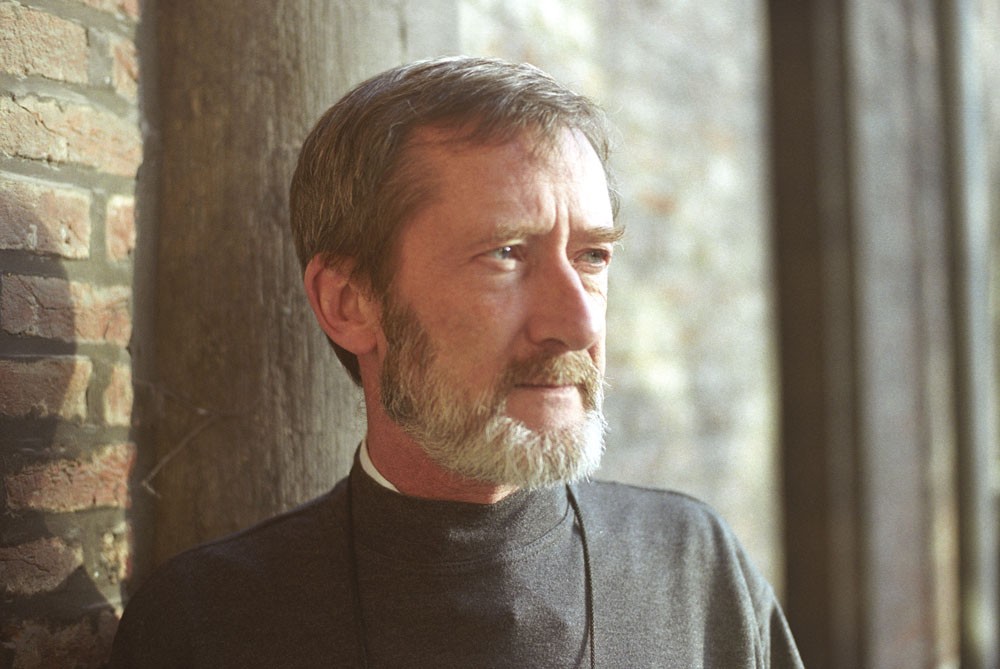Presidential Elections in Rwanda: No Level Playing Field
Unlike in 2003 and 2010, even the semblance of a competitive electoral process has disappeared in the run-up to this year’s presidential poll in Rwanda. Filip Reyntjens looks at President Paul Kagame’s electoral campaign and the latest measures his regime is mounting against the opposition.
“More of a coronation than real contest.” That is what the Kenyan daily The Standard wrote on 28 May 2017 about the Rwandan presidential poll slated for August 4th this year, and it sums up the reality quite well. In countries with truly competitive politics, elections are an important moment giving rise to debate and excitement. Not so in Rwanda.
Rwandans have become accustomed to polls where everything is settled in advance and in which they have no say. This has been the case in the de jure single party state before the 1994 genocide, and it still is in the de facto one party state after the Rwanda Patriotic Front (RPF) took power.
The stage was set in 2003, when a constitutional referendum and the first post-genocide presidential and parliamentary elections were organised. This happened just after the last genuine opposition party had been banned, and an EU observer mission arrived at the paradoxical conclusion that “political pluralism is more limited than during the transition period”. The electoral campaign was marred by arrests, “disappearances” and intimidations. The polls themselves were replete with fraud, manipulation of electoral lists, ballot-box stuffing, and flawed counting and consolidation. Paul Kagame was declared the winner with 95 percent of the vote.
Subsequent parliamentary elections in 2008 and 2013 and the presidential poll in 2010 displayed the same characteristics. Opposition leaders were arrested and sentenced to long prison sentences, other critical voices, among them politicians and journalists, were killed or fled into exile.
Fraud and pressure were observed at both the local and the central level. For instance, during the hours preceding the vote, local leaders went from door to door to collect voters’ cards. They filled the ballot paper, stamped the cards and informed the electors that they had voted and did not need to go to the polling station. At the central level, a Commonwealth observer mission found that the RPF-dominated National Electoral Commission (NEC) made it impossible “to ascertain quite where, how and when the tabulation was completed”, both between the polling stations and the districts and between the latter and the national level.
President Kagame could potentially stay in power for forty years
Nearing the end of his second and constitutionally last seven-year term, President Kagame repeatedly denied that he would seek re-election, even stating that he would consider it a failure on his part if he didn’t find someone to replace him and that “those who seek a third term will seek a fourth and a fifth”. His position remained ambiguous for a long while, but he made things very clear in May 2013. After Justice Minister Karugarama told The Observer that Kagame had to leave power in 2017 on account of the rule of law, he was promptly sacked.
Already in 2012 a campaign had started to “convince” the president to “abide by the people’s wish” to stay in office after 2017. In early 2015, the regime organised a drive of “spontaneous” petitions addressed to parliament demanding a constitutional revision. Almost 4 million Rwandans signed them, many under considerable duress, in an operation that could not possibly have been organised without Kagame’s knowledge and direction.
During “consultations” held throughout the country, MPs and senators only found ten persons, out of a population of eleven million, who opposed the initiative. Both houses unanimously approved the constitutional amendment, which was then submitted to a referendum. On 18 December 2015, after a one-sided campaign (only the small Democratic Green Party disagreed), 98.3 percent of the electorate endorsed the revised constitution.
Article 101 as amended maintains the two term limitation and reduces the term length from seven to five years. However, a transitional provision in article 172 provides for an additional seven year term for the incumbent, who can also be candidate for two more five year terms after 2024. As Kagame has effectively ruled the country since 1994, he could thus potentially stay in power for forty years.
While he had always been evasive about his ambitions, on 31 December 2015 the president announced that he would be candidate in 2017: “You have asked me to lead this country again after 2017. Given the importance you attach to this, I can only accept”. While the issue of term limits has led to protests and even violence in many African countries, in Rwanda there was no debate or demonstration. This is not surprising given that not a single public demonstration not organised by the regime has taken place in Rwanda since the RPF took power.
At “primaries” organised by the RPF throughout the country, Kagame was selected as the party’s flagbearer with 100 percent of the votes. Others too announced their intention to stand. Frank Habineza was announced as the Democratic Green Party’s candidate in December 2016. In early May 2017, an atypical independent candidate said she intended to join the race. In February, 35-year-old Diana Rwigara had courageously denounced flawed governance practices and human rights abuse in an outspoken fashion unheard of in Kagame’s Rwanda. Stating that “people are tired, people are angry”, she invited Rwandans to shed fear and stop being silent. In the days following her announcement as a candidate, doctored nude photographs of her circulated on social media.
Two other aspirants announced their intention to stand. One was not allowed access to Rwanda, while the other was denied room by Kigali hotels to hold a press conference. On 5 June, the two main “opposition” parties announced that they would not field a candidate and expressed their support for Kagame’s bid. So, unlike in 2003 and 2010, even the semblance of a competitive electoral process has disappeared.
Rwanda’s ruling party accepts no criticism or opposition
The challenges facing opposition candidates just to be allowed to stand are daunting. To become eligible, they need to collect 600 signatures from all 30 districts, including a minimum of 12 in each district. This may not seem much, but in an environment that does not tolerate criticism of the regime it takes a great deal of courage to openly expose oneself as an opposition supporter. In April 2017, the NEC warned candidates against soliciting funds for their campaigns, while through its business ventures the RPF is one of the richest parties in the world. Hardly a level playing field.
To make things worse, the NEC announced in May that any social media messages by candidates or their parties should be submitted for vetting 48 hours prior to their publication. Habineza called the decision “oppressive”, as criticism of the ruling party could be rejected on grounds of security reasons or because they are considered “poisonous”. After strong diplomatic protest, the measure was rescinded in early June 2017. Candidates are also not allowed to campaign before their bid is declared admissible by the NEC, which will happen on July 7th, just a week before the start of the campaign that lasts for only three weeks.
Parallel to such bureaucratic requirements, opposition parties – in particular the non-registered FDU-Inkingi – have seen their cadres abducted, arrested, “disappeared” or killed, hardly an environment in which campaigning against the incumbent is comfortable.
It is not surprising under these circumstances that the head of the EU delegation in Kigali said that “you would not lose any money if you bet on Mr. Paul Kagame”, noting how limiting the rules are for challengers and pointing at an environment “in which I suspect the outcome will be fairly predictable”.
I concur and put my entire fortune on a 90 percent plus victory for Paul Kagame, in what will indeed be a coronation rather than an election. All this is underscored by the latest Bertelsmann Stiftung’s Transformation Index (BTI) report on Rwanda where the scores (out of maximum 10) for political participation were: free and fair elections 2, effective power to govern 2, association/assembly rights 3, and freedom of expression 3. These scores reveal more than a thousand words.
Filip Reyntjens is Emeritus Professor of Law and Politics at the University of Antwerp.

